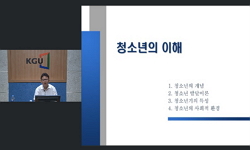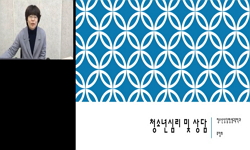Background & Objectives: This study aimed to examine the relationship between subjective health perception and health behaviors among adolescents, utilizing raw data from the 8th Korea National Health and Nutrition Examination Survey (2019-2021) while...
http://chineseinput.net/에서 pinyin(병음)방식으로 중국어를 변환할 수 있습니다.
변환된 중국어를 복사하여 사용하시면 됩니다.
- 中文 을 입력하시려면 zhongwen을 입력하시고 space를누르시면됩니다.
- 北京 을 입력하시려면 beijing을 입력하시고 space를 누르시면 됩니다.

한국 청소년의 성별에 따른 주관적 건강 인식과 건강행위의 관계: 국민건강영양조사 제8기 조사를 이용하여 = The Relationship Between Subjective Health Perception and Health Behavior of Korean Adolescents According to Gender: Using the 8th National Health and Nutrition Examination Survey
한글로보기https://www.riss.kr/link?id=A108991362
-
저자
이숙영 (군산간호대학교)
- 발행기관
- 학술지명
- 권호사항
-
발행연도
2024
-
작성언어
Korean
-
주제어
건강행위 ; 주관적 건강인식 ; 청소년 ; Adolescents ; Health Behavior ; Eelf-related Health
-
등재정보
KCI등재후보
-
자료형태
학술저널
-
수록면
17-28(12쪽)
- DOI식별코드
- 제공처
-
0
상세조회 -
0
다운로드
부가정보
다국어 초록 (Multilingual Abstract)
Background & Objectives: This study aimed to examine the relationship between subjective health perception and health behaviors among adolescents, utilizing raw data from the 8th Korea National Health and Nutrition Examination Survey (2019-2021) while distinguishing between genders.
Methods: The study employed data from the 8th Korea National Health and Nutrition Examination Survey (2019-2020), recruiting students from 1st to 3rd grades in middle and high schools nationwide. Through population stratification, sample distribution, and sampling stages, a final sample of 1,065 adolescents aged 12 to 18 years was selected. The collected data were analyzed using SPSS 28.0 (IBM Corp., Armonk, NY, USA) at a significance level of .05.
Results: Regarding the general characteristics of the subjects, no statistically significant differences were observed among male students based on school, family structure, and income. However, among female students, a significant difference in subjective health perception was noted, with higher perception among high school students compared to middle school students (p=.001). Significant differences in health behaviors were identified based on family structure for male adolescents, where those living with both parents exhibited more health-promoting behaviors than single-parent adolescents (p=.011). However, no significant difference was observed among female adolescents. In terms of health behaviors related to gender, regular exercise was found to significantly impact subjective health perception in male adolescents (p=.013), while breakfast habits were identified as significant influencers for female adolescents (p<.001).
Conclusions: This study revealed gender differences in subjective health perception and health behaviors among adolescents. Based on these findings, there is a perceived need for the development of health promotion programs tailored to the unique needs of male and female adolescents.
동일학술지(권/호) 다른 논문
-
국민건강영양조사 자료를 활용한 라이프스타일 위험요인과 다중이환간의 연관관계분석
- 한국학교·지역보건교육학회
- 이현주
- 2024
- KCI등재후보
-
청ㆍ중년층의 고혈압에 영향을 미치는 요인에 관한 연구: 2021년 지역사회건강조사 자료 활용
- 한국학교·지역보건교육학회
- 남영희
- 2024
- KCI등재후보




 ScienceON
ScienceON eArticle
eArticle






